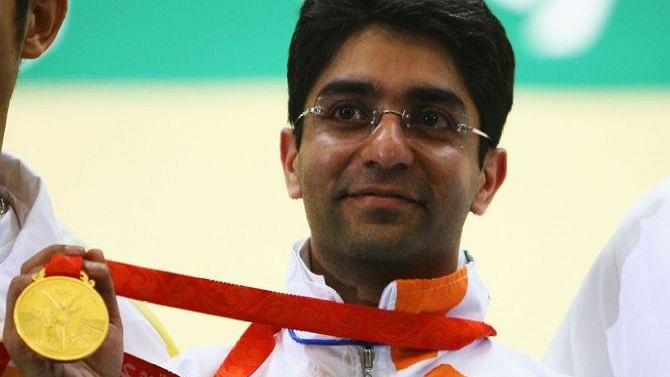
Abhinav Bindra had created history when he became the first Indian to win individual Olympic gold medal at the Beijing Olympics in 2008.
Credit: X/@India_AllSports
Paris: India's Olympic gold-medallist shooter Abhinav Bindra added another glittering feather to his illustrious career when he was elected as the second Vice Chair of the International Olympic Committee's (IOC) Athletes' Commission on Friday.
Bindra, India's first individual Olympic gold medallist who competed in five Games, was appointed as a member of the Athletes' Commission in 2018.
Soon after being elected to the prestigious post, Bindra, the 2008 Beijing Games gold medallist in 10m air rifle, said he was committed to the cause of the athletes.
"Honoured to be elected as the Second Vice Chair of the IOC Athletes' Commission. I'm committed to serving in the best interests of athletes worldwide and ensuring their voices are heard," wrote Bindra on 'X'.
The IOC, in a statement, said, "After the election of four new members to the International Olympic Committee (IOC) Athletes' Commission (AC) by the athletes competing at Paris 2024, the new-look Commission met today for the first time to elect its Chair and Vice-Chairs."
Emma Terho, a Finnish ice-hockey player, was re-elected as Chair of the Athletes' Commission while Maja Włoszczowska (Cycling, Poland) was elected Vice Chair along with Bindra.
All three will hold their positions until the Winter Olympics in 2026.
"Elected to the AC at Pyeongchang 2018, Terho was chosen to lead the Commission after the elections held during Tokyo 2020. She was subsequently re-elected as Chair at the Olympic Winter Games Beijing 2022," said the IOC statement.
"Terho is a five-time Olympian and former captain of the Finland women's ice hockey team, winning a bronze medal at both the Olympic Winter Games Nagano 1998 and Vancouver 2010." The Athletes' Commission Chair sits on the IOC Executive Board, representing the voice of sportspersons at the highest level of IOC decision-making.
The Commission plays a key role within the Olympic Movement, representing the global athlete voice within the IOC and beyond.
It is composed of a maximum of 23 members, 12 of whom are directly chosen through elections during the Summer and Winter Games, with a maximum of 11 appointed members to ensure a balance between genders, regions and sports.